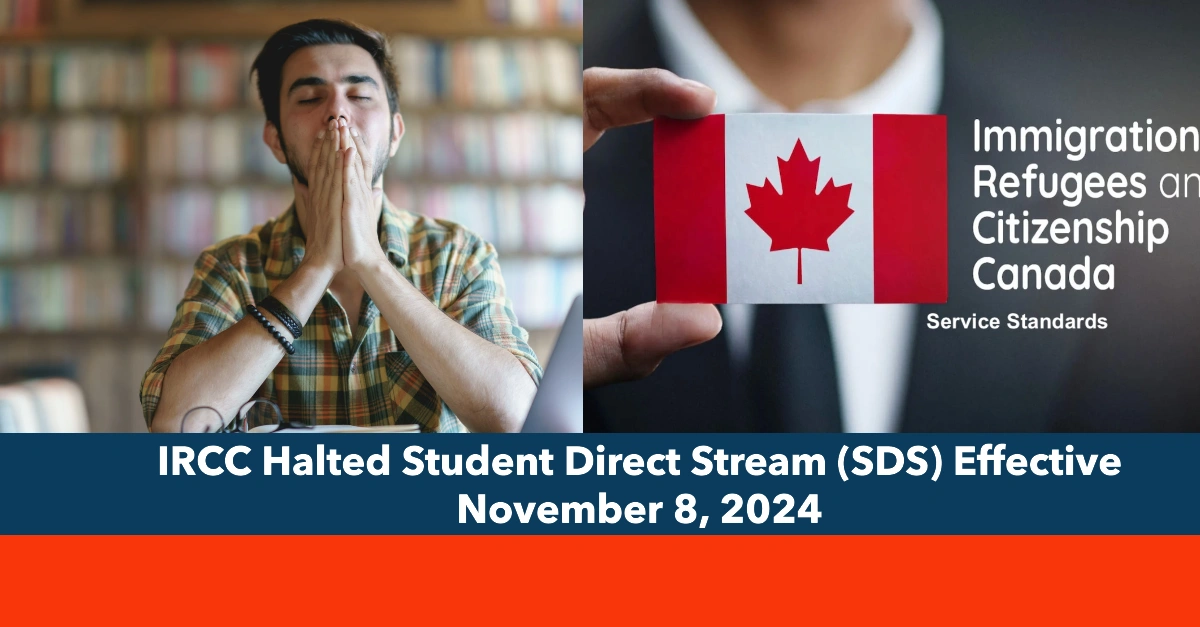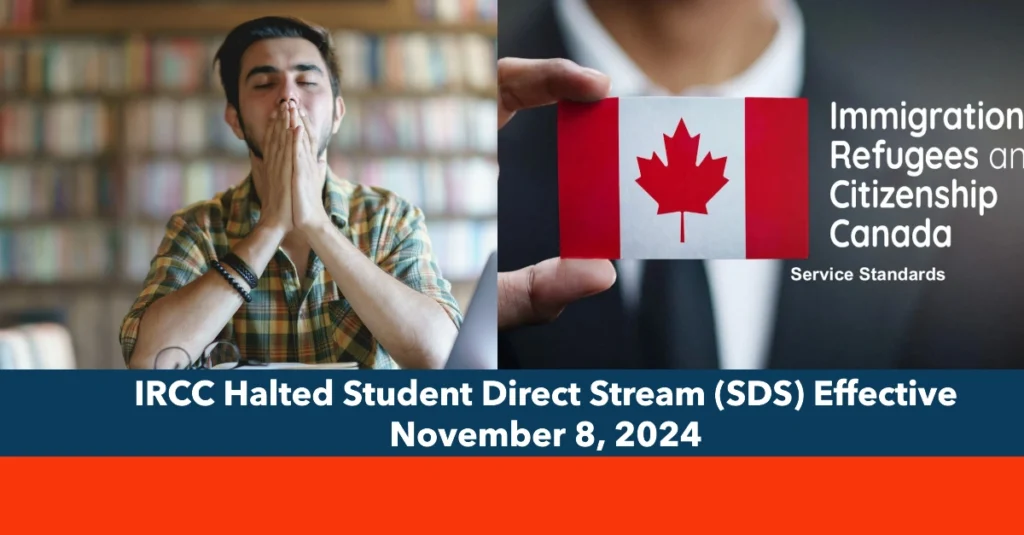
In a surprising turn of events, Immigration, Refugees and Citizenship Canada (IRCC) has officially closed the Student Direct Stream (SDS) as of today, November 8, 2024. This means that international students hoping to pursue their studies in Canada will no longer have access to the expedited application process that SDS provided.
What This Means for International Students
From this date forward, all study permit applications must be submitted through the standard application process. The termination of the SDS is expected to have a significant impact on students who had planned to leverage the benefits of this faster route. With SDS’s higher approval rates and quicker processing times no longer available, applicants should prepare for potential delays and additional planning.
A Brief History of the Student Direct Stream
The SDS was introduced in 2018 to streamline and expedite study permit applications for students from 14 eligible countries, including:
- India
- China
- Pakistan
- The Philippines
- And several other countries in Asia and Africa
The primary advantage of the SDS was its promise of faster processing times and higher approval rates, which attracted thousands of international students each year. The streamlined process also had specific eligibility criteria, such as:
- Language Proficiency: Applicants needed to provide language test results to demonstrate proficiency in English or French.
- Guaranteed Investment Certificate (GIC): Students had to open a Canadian GIC worth at least $20,635 CAD to prove they had the financial resources to support themselves while studying in Canada.

Impact of the SDS Closure on Study Permit Processing
The closure of the SDS means students will now have to navigate the regular study permit application route, which is typically more time-consuming. For example, as of today, the average processing time for study permit applications from India has increased to 8 weeks. This change could significantly delay the plans of international students who need to secure study permits in time for upcoming semesters.
Reasons Behind the Closure
The Canadian government has been taking steps to manage the growing number of temporary residents, including international students and work permit holders. In 2024, several new measures were introduced as part of a broader strategy to regulate the influx of temporary residents and ensure that Canada’s immigration system remains sustainable. These changes aim to address issues such as housing shortages, infrastructure pressures, and overall population management.
anada Implement New Rules for Post-Graduation Work Permits Eligibility Criteria
1200 Month for Retired Seniors Know Eligibility Payment Dates Fact Check
IRCC Caregiver Pilot Programs 2024: Eligibility & Application Process
Express Entry Draws October 2024: IRCC Issues 2,113 PR Invitations in Latest Draws
IRCC Extends Public Policy for Immigration Medical Examination Exemptions until 2029
Key Considerations for Future Study Permit Applicants
- Start Applications Early: Without the expedited SDS route, students must plan well in advance to account for potentially longer processing times.
- Prepare for Standard Requirements: All applicants will now need to fulfill the general study permit requirements, which may vary depending on their home country. This includes providing proof of financial support, language proficiency, and acceptance from a designated learning institution (DLI) in Canada.
- Monitor Processing Times: Regularly check IRCC’s website for updates on current processing times, which can fluctuate based on application volumes and country-specific factors.
Tips for a Successful Study Permit Application
To improve the chances of a successful study permit application under the standard process, students should:
- Ensure All Documents Are Complete: Double-check that you have provided all required documents, including financial proof, a valid letter of acceptance from a DLI, and medical exams if required.
- Provide Accurate Information: Avoid errors or discrepancies in your application that could lead to delays or refusals.
- Consider Consulting an Immigration Expert: Given the complexity of the standard process, consulting with a licensed immigration consultant or lawyer might be beneficial to ensure your application is as strong as possible.
Looking Ahead: The Future of Canada’s International Student Program
The closure of the SDS is part of a broader trend in Canada’s immigration policy. As the government continues to fine-tune the program to balance the benefits of welcoming international students with the need to manage temporary resident levels, further changes may be on the horizon.
International students planning to study in Canada should stay informed about any additional updates or measures that may affect their study plans.
Stay tuned for more updates on how these changes will evolve and how international students can best prepare for the new application landscape in Canada.


Leave a Reply